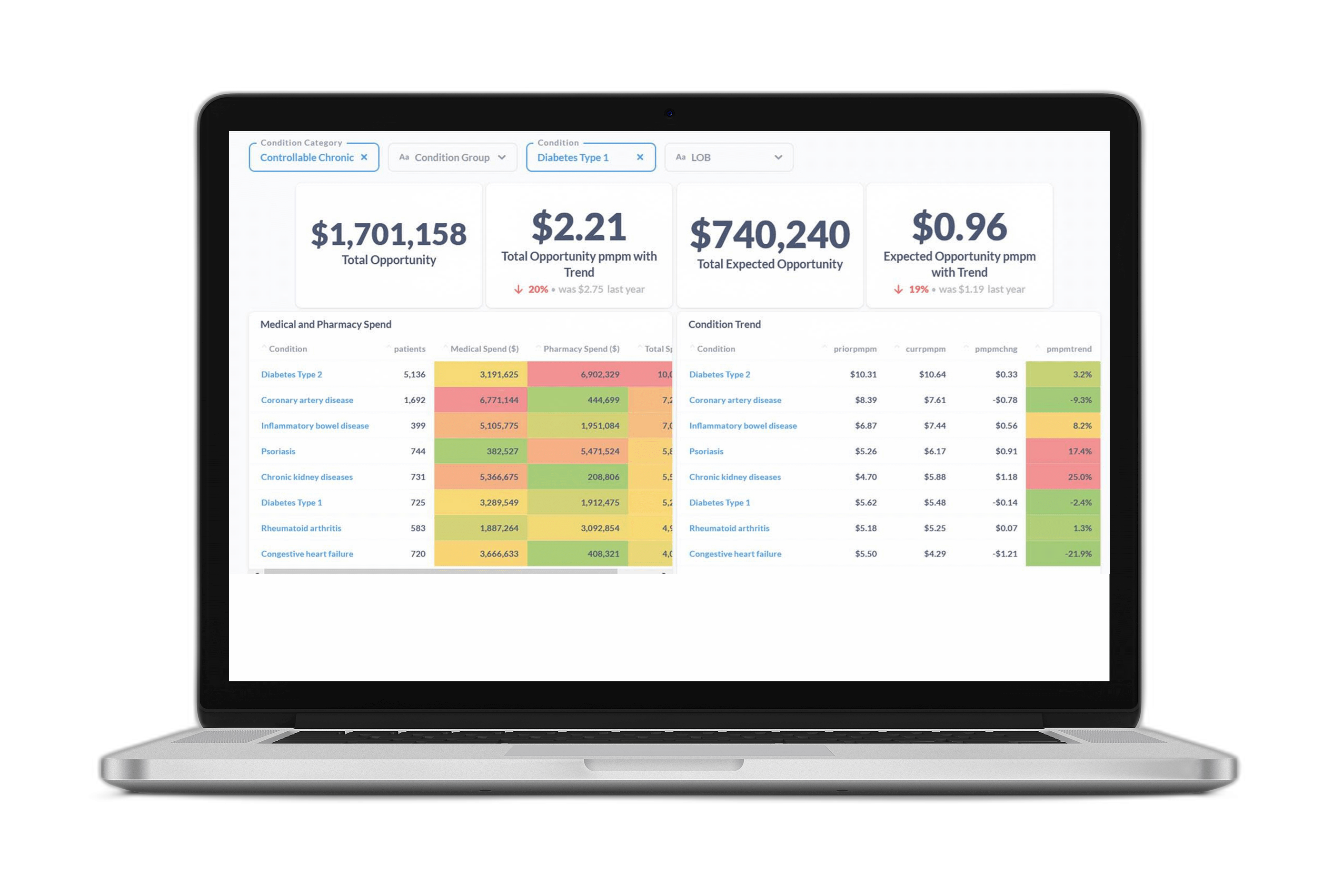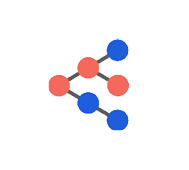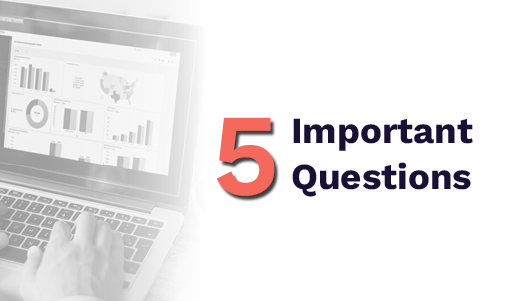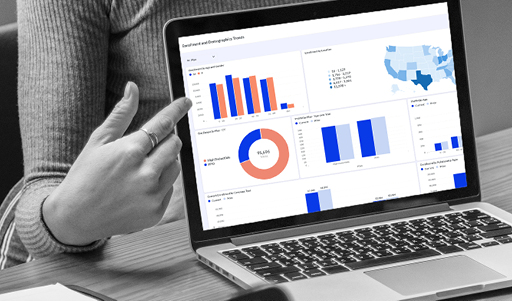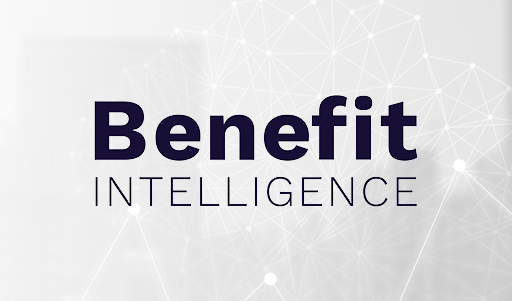There’s been a lot of excitement around the launch of our new Insights & Advisory Services offering. With this service, we hope organizations who have been hesitant to shift to an AI-focused data management and predictive analytics strategy, will feel more confident about making a change—knowing they’ll have a dedicated team of AI and healthcare experts supporting them every step of the way.
We’re proud of the experienced team we’ve assembled over the last 10 years to support our customers transition to AI-driven predictive intelligence. So, we’d like to introduce some our experts, their passion for healthcare analytics, and their role on the team.
Predictive Analytics Solution Experts

Alison Bradley – VP of Analytic Solutions
Areas of Expertise: I am passionate about understanding and interpreting healthcare analytics, creating interesting and informative healthcare analytic dashboards, presenting complex healthcare data in an understandable way and developing strong, long-lasting client relationships.
Why is AI Important in Healthcare Analytics? AI in healthcare analytics is crucial for improving the quality, efficiency, and accessibility of healthcare services while reducing costs and fostering innovation. With Certilytics AI-powered solutions, we are able to analyze vast amounts of claims data to predict future health outcomes to help in the early detection of diseases, identifying at-risk populations, and enabling preventive measures. For example, we can predict the likelihood of conditions like heart disease, diabetes, or high-risk pregnancy before symptoms appear.
_____________________________________

Alexandra Amaral-Medeiros – Senior Director, Solutions Engineering
Areas of Expertise: When working with healthcare data my expertise is in developing data visualization, interpreting data for healthcare executives, brainstorming with analysts on how to approach projects and relevant topics and most importantly using industry knowledge to derive the “so what” from complex datasets.
How do you use AI in your role at Certilytics? I use AI at Certilytics to analyze large datasets and extract valuable insights. With CertHLM I love being able to read my customers’ data in plain language. I also use our predictive models to identify the future health risks of my customers’ population. With our predictive models, we can help customers develop plans to improve health outcomes and lower costs simultaneously.
Data Science & AI Development Experts

Eugene Kwak – SVP Data Science
Areas of Expertise: Throughout my career, I have been fortunate to gain a range of experiences in the healthcare domain including claims coding, benefit design, and payment integrity. Combining this knowledge with my training in machine learning and data design enables me to not only communicate across teams with varying levels of technical and clinical expertise but also deliver unique analytical and AI-driven solutions with quick turnaround times – allowing customers to realize value as soon as possible.
How do you use AI in your role at Certilytics? AI has become an increasingly important tool for maximizing efficiency and value in healthcare analytics. One way Certilytics leverages AI is to accelerate research and development of products that address critical gaps that have long challenged population health management.
_____________________________________

Steve Lauer – Director, Data Science
Areas of Expertise: My area of expertise is with ROI and validation studies for programs, vendors, and healthcare interventions as well as provider scoring analytics.
Why is AI Important in Healthcare Analytics? Health and healthcare are extremely complex for even one individual. When we have thousands or millions of lives in our data, we do not have time to thoroughly vet what is happening to every member of every program. AI can help us find trends and common attributes between members that may be missed by broad strokes data aggregation.
Data Analyst Experts

Chelsea Finch – Senior Healthcare Data Analyst
Areas of Expertise: I have extensive, analytic experience working with unique, large volume data sets including insurance claims, COVID outbreaks, and HCAHPS surveys.
Why is AI Important in Healthcare Analytics? The predictive modeling capabilities of AI will have an enormous impact on healthcare analytics. Trend identification and predictive analytics will have major implications for increasing quality of healthcare delivery, disease prevention, and decreasing disease burden across populations.
_____________________________________

Ashley Weis – Director, Operations
Areas of Expertise: I have a strong understanding and experience with most healthcare data domains, building data visualizations in our Fusion Business Intelligence Toolkit to support specific needs of our various types of customers. I am also familiar with every step of our pipeline from ingesting a client’s data to end deliverables in Fusion and other data and analytic outputs.
Why is AI Important in Healthcare Analytics? The analytics outputs I have access to, allow me to use the results of our clinical and financial predictive models daily to provide unique insights and analysis to our clients.
Actuarial Experts

Charles Bloss – EVP & Chief Actuary
Areas of Expertise: My areas of expertise include UDS/provider discounts, product pricing, rate filings, underwriting and reserves.
How do you use AI in your role at Certilytics? In my role I have been a part of building new underwriting solutions that are leveraging AI. It’s exciting to see how AI can help improve risk prediction accuracy and the speed at which those insights are available to underwriters.
_____________________________________

Stacy Wellde – VP Actuarial Advisory & Consulting
Areas of Expertise: My experience is with healthcare data, pharmacy analytics, UDS as well a high-cost claimants and stop-loss.
Why is AI Important in Healthcare Analytics? While we currently utilize machine learning models to predict risk and cost, I am excited to see how AI can improve healthcare delivery and outcomes. Earlier disease detection and even prevention is helpful in not only for healthcare, but a patient’s quality of life.
Click here to learn more about our Insights & Advisory team or if you’re ready to speak to us about how our experts can help you embrace an AI-driven analytics approach, schedule a meeting with us.




